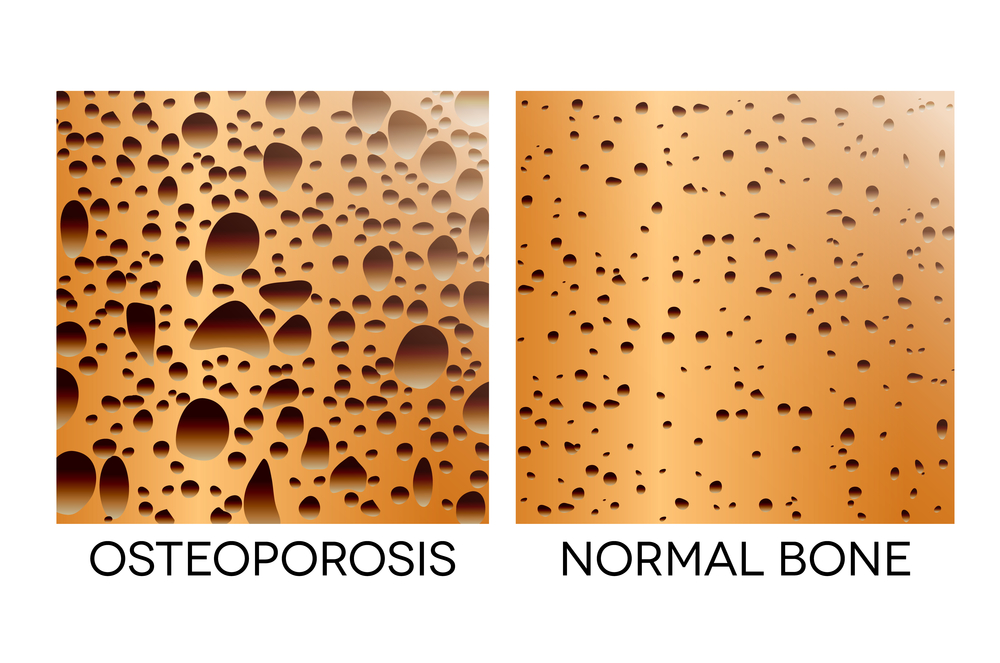Now is an exhilarating time to study holistic health. These ancient systems of healing like acupuncture, Ayurveda, and herbal remedies have seen a resurgence in use. In the past, holistic healing methods were not taken seriously, but they are now becoming accepted parts of the western medical industry. As research continues, these holistic approaches are showing to be very advantageous to patients.
The shift is not only arising from within the healthcare sector. People are seeking control over their health by taking an active role. As opposed to simply complying with physician-prescribed treatments, a lot of people wish to become more involved in maintaining their emotional and physical health, as well as in understanding and addressing the cause of their ache or sickness. Individuals are seeking out knowledgeable experts to assist them on their journey.
What is Holistic Health?
Holistic health is a wide-ranging method of caring for individuals that centers around the concept of total health. So what does that look like?
Jennifer Bennett, ND, LAc, a naturopathic doctor and professor at Bastyr University in Seattle, explains that holistic health is an encompassing method which factors in all components of somebody’s wellbeing. “It includes physical, mental, and emotional health. This contemplates the effects that diet, habits, sleep, and environmental contact have. This approach considers the entire body operating as a unit rather than only focusing on the isolated parts of the body.
The American Holistic Health Association, a non-profit organization, creates links to health-promoting services, emphasizing the importance of looking after all aspects of a person’s existence – physical, mental, emotional, and spiritual – so as to reach peak well-being. It is maintained in holistic health approaches that all parts of a system are interconnected and when one aspect is disturbed, this has a negative effect on the others.
A holistic approach to healthcare focuses on the patient as a whole, rather than simply treating specific physical ailments. This involves understanding how the body’s systems interact and function in harmony. Holistic health professionals try to enhance the entire body’s health condition in contrast to concentrating on symptoms from a single body part.
A variety of healthcare roles can benefit from employing holistic health principles. A variety of healthcare workers, including surgeons, physical therapists, and nurses, can include complete body well-being practices into patient treatment.
Several job opportunities that can be classified as holistic health exist. You have the option to select a job in naturopathic medicine instead of medical school courses, center on aiding people to be successful as a life mentor, and other set of activities.
Holistic Health Versus Alternative Medicine: What’s the Difference?
It’s easy to confuse alternative medicine and holistic health. You might have come across both of these words being used interchangeably. However, there is a difference.
Although practices of alternative medicine usually involve an approach to overall well-being, holistic health is not always separate from conventional medicine. Why? When alternative medicine is employed, it is employed in the place of conventional Western medicine.
Alternative Medicine
Alternative treatments are intended to be an option to traditional medicine.
Holistic Health
In contrast, conventional medical professionals frequently employ holistic health as part of their therapeutic strategies.
For instance, sometimes individuals diagnosed with cancer who are receiving chemotherapy are also given acupuncture procedures so as to help handle their signs and symptoms. In this situation, acupuncture is incorporated into a comprehensive treatment plan along with chemo. Using acupuncture as a main way to treat cancer instead of chemotherapy would constitute it as an alternate form of medicine.
Holistic Health Practitioner Education
Your education in overall well-being hinges on the route you wish to take. Certain jobs may necessitate a brief instruction program, whereas others may necessitate a master’s or even doctorate-level instruction.
Bennett states that the majority of programs necessitate thorough instruction and practical expertise. To gain entry into the naturopathic medicine program, a minimum of four years of a doctoral program, in addition to many hours of clinical experience and overseeing patients, is necessary.
Some holistic health experts practice a known method of healing, including Traditional Chinese Medicine and Ayurveda. If you select this route, you could go to an institution that focuses on holistic health. You will get a knowledge of the background of that type of healing as well as its ways of analyzing and dealing with health issues.
Some parts of your schooling will be determined by what your state asks for. Not all holistic health-related occupations are controlled by state governments, though a great number of them are. Be certain that you understand the regulations and conditions for being certified in your career field in your state.
Furthermore, because most holistic health professionals are self-employed, regardless of if they are situated in a spa or health clinic, they must possess expertise in business administration.
How Long Does It Take?
The duration and structure of holistic health school programs differ greatly. It is essential to invest your time in looking into your program in detail as your future clients will be intensely curious about your qualifications. You must prove that you had an excellent schooling and achieved any certifications or authorizations necessary for the job.
Your training time in holistic health could be any length from one year up to four years, depending on which program you select and what your target is. Most programs offer a diploma or certificate. Certain universities have a Bachelor of Science program that covers topics concerning holistic nutrition, natural health, or natural health studies.
It is possible to get a Master’s degree, and it is even feasible to pursue postgraduate studies in order to receive a Doctor of Naturopathy, Doctor of Natural Health, or Doctor of Philosophy in Holistic Nutrition diploma.
What Makes a Successful Holistic Health Practitioner?
Successful holistic health practitioners usually possess the following attributes:
- A commitment to lifelong learning
- Curiosity and open-mindedness
- Sensitivity and compassion
- Good listening and communication skills
- Highly observant and detail-oriented
- A commitment to their health and wellness
Those that wish to take up holistic health as a profession have a vast array of learning opportunities available to them. You have the option of getting an undergraduate degree in holistic health or specializing in a particular form of healing.
Certification and Licensing
Many different kinds of accreditation and permission can be obtained in the area of holistic health. In order to practice massage therapy, you must possess a legitimate license in the particular state you plan on working in. Other fields, such as aromatherapy, are not regulated.
A number of institutions and groups have started to provide comprehensive and comprehensive credentials in well-being. Gaining board certification as a holistic health practitioner via the American Association of Drugless Practitioners is a widely-chosen path.
What Kinds of Holistic Healthcare Careers Are There?
Acupuncturist
A professional acupuncturist goes through schooling to gain knowledge on how to safely insert thin, clean needles into particular places on the body in order to tackle physical and/or mental health issues. Health practitioners from a range of backgrounds can make use of acupuncture in their practice, yet acupuncturists usually have a more extensive education comprising of three to four years in order for them to be able to carry out extensive, tailored observations and make modifications to their treatment plans to meet the particular requirements of their patients.
Most states demand a permit to provide acupuncture services and the NCCAOM issues the standard approval to obtain licensure. In order to receive the licensing of the NCCAOM for acupuncture, one should have attended a master’s degree applications that focused on theories of oriental medicine and acupuncture, topics of biomedicine, mission statements of ethics, and other related areas such as practice management over the span of three years.
Biofeedback Practitioner
A biofeedback specialist helps people get healthier and perform better through the use of sensors to gauge the breathing rate, heart rate variability, muscle tension, sweating, and body temperature.
Biofeedback specialists analyze data obtained from tools like electrocardiographs (ECG), electromyography (EMG) and electrodermographs (EDG) in order to determine what treatments or procedures would be the most useful in aiding someone dealing with issues such as heavy perspiration, asthma, COPD, PTSD, high blood pressure and more.
Individuals who are looking to do biofeedback can earn voluntary certification from the Biofeedback Certification International Alliance (BCIA). In order to join at the basic level, biofeedback specialists must hold a Bachelor’s degree in a health care subject, taken a course in human anatomy and physiology, done a 42-hour educational course on biofeedback, plus had 20 hours of practical learning under a BCIA-approved trainer.
Chiropractor
A chiropractor assists people suffering from nerve or back problems through hands-on adjustments and movement of the spinal column. Chiropractors may be able to provide assistance for individuals experiencing issues such as backache, cervicogenic headaches, myofascial pain, sciatica, coccydynia, herniated discs, piriformis syndrome, kyphosis, and other disorders.
In order to be a chiropractor, an individual must get a Doctor of Chiropractic degree and then receive the proper authorization to operate in the state where they would like to work. The most straightforward way to get a license is to achieve a Doctor of Chiropractic degree from a program that is endorsed by the Council on Chiropractic Education.
Due to the array of areas of specialization a chiropractor may choose to learn during their formal education and professional career, various certifying authorities provide certifications. The American Chiropractic Association and the American Board of Chiropractic Specialities collaborate in order to make certain that chiropractic specialty credentials meet a high standard of quality.
Health and Wellness Coach
A health and wellbeing mentor functions as a comprehensive health specialist who works together with customers to motivate favorable change in their method of managing their well-being and health. These coaches give their clients the capability to become their own answer by utilizing methods such as health inspection, motivational conversing, positive psychology, forming and reversing habits, principles of transformation, and responsibility and setting objectives to enable a customer to perceive where they are and enable the client to get to where they would like to be health-wise. Well-being advisors who are knowledgeable in functional health and nutrition are frequently educated.
One can become a health and wellness coach by attaining an associate’s degree or higher in a health-related area. Different organizations offer certifications for health coaching, and a common requirement for getting a credential is that the student must finish an authorized and/or customized program of study from the certifying body. Instances of organizations that provide certification for health and wellness mentors include the National Society of Health Coaches (NSHC), the National Board for Health and Wellness Coaching (NBHWC), and the American Council on Exercise (ACE).
Holistic or Integrative Gynecologist
Integrative gynecologists aid women in attaining reproductive wellbeing by utilizing treatment approaches that note the entire body as an integrated whole. Traditional OBGYNs typically focus on particular treatments that view the issue narrowly or mechanistically (such as hormones, surgery, drugs, etc.). In contrast, holistic gynecologists use techniques that consider the entire person (e.g. herbals, nourishment, and presence) and attempt to reestablish the body’s equilibrium and cycles.
In order to become an expert in holistic gynecology, an individual must finish a medical doctorate program in obstetrics and gynecology and receive official certification from the American Board of Obstetrics and Gynecology. A holistic or integrative gynecologist does not have a specific certificate for this type of practice, but they are able to get a general certification in integrative medicine from the American Board of Integrative Medicine (ABOIM).
In order to earn this certification, those who are holistic gynecologists must have graduated from a four-year naturopathic program, the Accreditation Commission on Acupuncture and Oriental Medicine (ACAOM), the Council on Chiropractic Education (CCE) or have finished a degree in integrative medicine.
Holistic Nutritionist
Classic nutritionists have an extensive knowledge of the effects a person’s diet has on their body and work with clients to devise, adjust, and put in place nutritional regimes that promote better health, assist with medical issues, enhance physical performance, and match the client’s budget as well as lifestyle.
Nutritionists who practice holistic methods are educated on the effects of food on not just the body, but on the spirit and psyche too, and they employ this knowledge to assist their clients with both mental and spiritual wellbeing. In order to pursue a career as a holistic nutritionist, one must possess at least a bachelor’s degree, and a license is commonly required to be able to practice in most states. Those who eventually want to obtain certification from a voluntary professional organization should research nutrition courses that have been accepted by the National Association of Nutrition Professionals (NANP).
The National Academy of Nutrition and Dietetics (NANP) and the Holistic Nutrition Credentialing Board (HNCB) provide two different certification standards for holistic nutritionists, such as the board-certified in holistic nutrition (BCHN) and the certified nutrition professional (CNP). To receive the BCHN, you must fulfill 500 hours of practice in holistic nutrition. The CNP certification requires all the BCHN prerequisites plus 1,200 hours of supervision administered by either a CNP or another trained nutritionist.
The ingredients in the Holistic Fitness pack work with your body to help deliver the nutrients, energy, oxygen and protein it needs right when you need them!
- Support healthy oxygen, nitric oxide, and nutrient levels in your blood
- Help reduce lactic acid, dehydration and deficiencies that lead to headache, cramping and fatigue
- Promote rapid recovery and repair of new muscle growth
- Promote more elastic (tighter) skin and lean muscle synthesis









